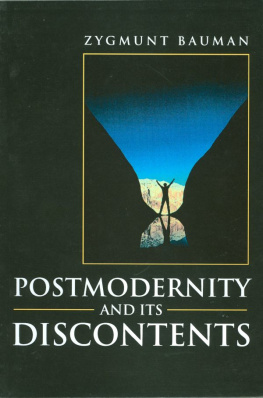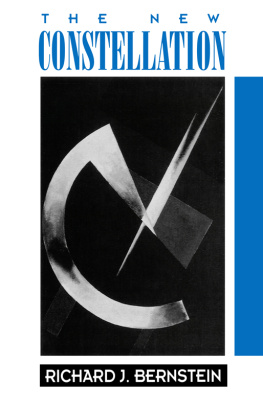
JAPANESE ENCOUNTERS WITH POSTMODERNITY
Japanese Studies General Editor: Yoshio Sugimoto
Images of Japanese Society: Ross E. Mouer and
Yoshio Sugimoto
An Intellectual History of Wartime Japan:
Shunsuke Tsurumi
A Cultural History of Postwar Japan:
Shunsuke Tsurumi
Beyond Computopia: Tessa Morris-Suzuki
Constructs for Understanding Japan:
Yoshio Sugimoto and Ross E. Mouer
Japanese Models of Conflict Resolution:
S. N. Eisenstadt and Eyal Ben-Ari
Changing Japanese Suburbia: Eyal Ben-Ari
The Rise of the Japanese Corporate System:
Kofi Matsumoto
Science, Technology and Society in Postwar Japan:
Shigeru Nakayama
Group Psychology of the Japanese in Wartime:
Toshio Iritani
Enterprise Unionism in Japan:
Hirosuke Kawanishi
Social Psychology of Modern Japan:
Munesuke Mita
The Origin of Ethnography in Japan:
Minoru Kawada
Social Stratification in Contemporary Japan:
Kenfi Kosaka
Sociology and Society of Japan:
Nozomu Kawamura
Diversity in Japanese Culture and Language:
John C. Maker and Gaynor Macdonald
Difference and Modernity: Social Theory and Contemporary Japanese
Society: John Clammer
Migrant Workers in Japan: Hiroshi Komai
Kanji Politics: Nanette Gottlieb
Japanese Encounters with Postmodernity:
Johann R Arnason and Yoshio Sugimoto
JAPANESE ENCOUNTERS WITH POSTMODERNITY
jointly edited by
Johann P. Arnason
and
Yoshio Sugimoto
First published in 1995 by
Kegan Paul International
This edition first published in 2010 by
Routledge
2 Park Square, Milton Park, Abingdon, Oxon, 0X14 4RN
Simultaneously published in the USA and Canada
by Routledge
711 Third Avenue, New York, NY 10017
Routledge is an imprint of the Taylor & Francis Group, an informa business
Johann P.Arnason and Yoshio Sugimoto 1995
All rights reserved. No part of this book may be reprinted or reproduced or utilised in any form or by any electronic, mechanical, or other means, now known or hereafter invented, including photocopying and recording, or in any information storage or retrieval system, without permission in writing from the publishers.
British Library Cataloguing in Publication Data
A catalogue record for this book is available from the British Library
ISBN 10: 0-7103-0513-3 (hbk)
ISBN 13: 978-0-7103-0513-8 (hbk)
Publisher's Note
The publisher has gone to great lengths to ensure the quality of this reprint but points out that some imperfections in the original copies may be apparent. The publisher has made every effort to contact original copyright holders and would welcome correspondence from those they have been unable to trace.
Contents
| 1. |
| Johann P. Arnason and Yoshio Sugimoto |
| 2. | THEORY:
Modernity, Postmodernity and the Japanese Experience |
| Johann P. Arnason |
| 3. | WORK:
Postmodernism or Ultramodernism: The Japanese Dilemma at Work |
| Ross Mouer |
| 4. | INDUSTRIAL RELATIONS:
Is Japanese Capitalism Post-Fordist? |
| Tetsuro Kato and Rob Steven |
| 5. | GENDER:
Equal Opportunity and Gender Identity: Feminist Encounters with Modernity and Postmodernity in Japan |
| Vera Mackie |
| 6. | SCIENCE:
Fuzzy Logic: Science, Technology and Postmodernity in Japan |
| Tessa Morris-Suzuki |
| 7. | LITERATURE:
Questioning Modernism and Postmodernism in Japanese Literature |
| Toshiko Ellis |
| 8. | FINE ARTS:
The Conditions for Postmodernity in Japanese Art of the 1980s |
| John Clark |
| 9. | COMMUNICATION:
Modernisation and Postmodernisation of the Japanese System of Communication |
| J.V. Neustupn |
| 10. | SOCIAL STRATIFICATION:
Changing Status Perceptions in Contemporary Japan: A Debate on Modernity and Postmodernity |
| Kenji Kosaka |
| 11. | POLITICS:
The Japanese Postmodern Political Condition |
| Paul Harrison |
| 12. | JAPANESE STUDIES:
Nihonjinron at the End of the Twentieth Century: A Multicultural Perspective |
| Ross Mouer and Yoshio Sugimoto |
Plates
between pages 164 and 165
Figures
| 3.1 |
| 3.2 |
| 3.3 |
| 3.4 |
| 3.5 |
| 4.1 |
| 12.1 |
| 12.2 |
| 12.3 |
| 12.4 |
Tables
| 3.1 |
| 3.2 |
| 3.3 |
| 3.4 |
| 10.1 |
| 10.2 |
| 10.3 |
| 10.4 |
| 10.5 |
| 10.6 |
| 12.1 |
| 12.2 |
| 12.3 |
| 12.4 |
It is a Japanese convention that in written references to names, the family name is placed before the given name. In most English-language publications, the Japanese name order is made consistent with the English practice where the given name is followed by the family name. The editors of this volume allowed each contributor to use his or her own preference. When in doubt, readers are requested to refer to the bibliography and the index.
Contributors
Joint Editors
Johann Arnason and Yoshio Sugimoto, Professors of Sociology, School of Sociology and Anthropology, La Trobe University, Melbourne.
Contributors
John Clark,
School of Asian Studies,
University of Sydney.
Toshiko Ellis,
College of Arts and Sciences,
University of Tokyo.
Paul Harrison,
Queensland University of Technology,
Zillmere.
Tetsuro Kato,
Faculty of Social Sciences,
Hitotsubashi University,
Tokyo.
Kenji Kosaka,
School of Sociology,
Kwansei Gakuin University,
Nishinomiya.
Vera Mackie,
Department of History,
University of Melbourne.
Tessa Morris-Suzuki,
Research School of Pacific Studies,
Australian National University,
Canberra.
Ross Mouer,
Department of Japanese Studies,
Monash University,
Melbourne.
J. V. Neustupny,
Faculty of Letters,
Osaka University.
Rob Steven,
School of Political Science,
University of New South Wales,
Sydney.
Most papers of this volume were initially submitted to the Seventh Biennial Conference of the Japanese Studies Association of Australia held at the Australian National University in July 1991. The joint editors are grateful for generous financial assistance, provided in support of publication, by the Japanese Studies Association of Australia Inc., the Faculty of Social Sciences and the School of Sociology and Anthropology at La Trobe University.







